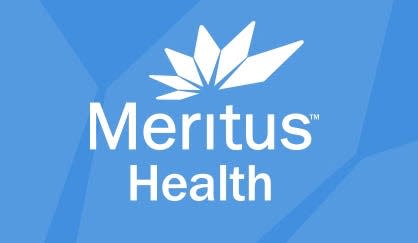Meritus cardiologist: Heart health is told by numbers
February is a month decorated with love and hearts in anticipation of Valentine’s Day, but it’s also Heart Health Month. It is important to know your numbers and stay healthy, but should you develop high blood pressure, high cholesterol or another cardiac issue, expert care in cardiology is now closer to home.
When it comes to knowing how well your heart is doing, it’s all about the numbers. This Q&A with Dr. Fahad Lodhi, cardiologist at Meritus Hagerstown Heart, explains what numbers you need to know.

Q: What should my cholesterol levels be?
A: “You should look beyond cholesterol levels alone,” said Dr. Lodhi. “The best approach considers overall risk assessment and reduction. It’s important to know your numbers and work with your doctor to treat your risk. They will assess your risk factors to choose the best treatment options,” he added.
Q: What is HDL cholesterol?
A: “HDL cholesterol is called ‘good’ cholesterol,” said Dr. Lodhi. A healthy HDL-cholesterol level may protect against heart attack and stroke, by moving cholesterol away from your arteries and back to the liver where it can be processed and removed from your body,” he said.
Q: What is LDL cholesterol?
A: “There is where we get to what’s called the ‘bad’ cholesterol. The body’s tissues use some of this cholesterol to build cells, but too much can cause fatty buildups inside your arteries,” Dr. Lodhi said.
Q: What are triglycerides?
A: “Triglycerides are the most common type of fat in your body. They come from food, and your body also makes them, and they store excess energy from your diet,” said Dr. Lodhi.
A high triglyceride level combined with high LDL (bad) cholesterol or low HDL (good) cholesterol is linked with fatty buildups within the artery walls. This increases the risk of heart attack and stroke.
Q: What is high blood pressure?
A: “Blood pressure is the force of blood pushing against blood vessel walls.” He said. Adding that high blood pressure means the pressure in your arteries is higher than it should be. Another name for high blood pressure is hypertension.
Blood pressure is written as two numbers. The top, or larger, number (called systolic pressure) is the pressure when the heart beats. The bottom, or smaller, number (called diastolic pressure) is the pressure when the heart rests between beats.
Normal blood pressure is below 120/80 mm Hg.
If you’re an adult and your systolic pressure is 120 to 129, and your diastolic pressure is less than 80, you have elevated blood pressure.
High blood pressure is a systolic pressure of 130 or higher, or a diastolic pressure of 80 or higher, that stays high over time. High blood pressure usually has no signs or symptoms. That’s why it is so dangerous. But it can be managed.
“Nearly half of the American population over age 20 has HBP, and many don’t even know it. Untreated high blood pressure is dangerous. High blood pressure increases the risk of heart attack and stroke,” Dr. Lodhi said.
Make sure you get your blood pressure checked regularly and treat it as your healthcare professional advises. Throughout the month of February, Meritus Health is offering free blood pressure screenings.
More information can be found at MeritusHealth.com/Heart.

This article originally appeared on The Herald-Mail: February is Heart Health Month. Here's what you should know
